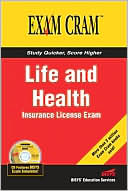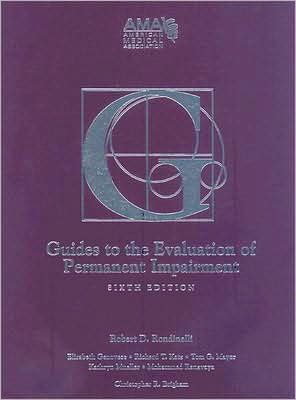Holding Health Care Accountable: Law and the New Medical Marketplace
Health care in the US and elsewhere has been rocked by economic upheaval. Cost-cuts, care-cuts, and confusion abound. Traditional tort and contract law have not kept pace. Physicians are still expected to deliver the same standard of care — including costly resources - to everyone, regardless whether it is paid for. Health plans can now face litigation for virtually any unfortunate outcome, even those stemming from society's mandate to keep costs down while improving population health. This...
Search in google:
Health care in the US and elsewhere has been rocked by economic upheaval. Cost-cuts, care-cuts, and confusion abound. Traditional tort and contract law have not kept pace. Physicians are still expected to deliver the same standard of care — including costly resources - to everyone, regardless whether it is paid for. Health plans can now face litigation for virtually any unfortunate outcome, even those stemming from society's mandate to keep costs down while improving population health. This book cuts through the chaos and offers a clear, persuasive resolution. Part I explains why new economic realities have rendered prevailing malpractice and contract law largely anachronistic. Part II argues that pointing the legal finger of blame blindly or hastily can hinder good medical care. Instead of "whom do we want to hold liable," we should focus first on "who should be doing what, for the best delivery of health care." When things go wrong, each should be liable only for those aspects of care they could and should have controlled. Once a good division of labor is identified, what kind of liability should be imposed depends on what kind of mistake was made. Failures to exercise adequate expertise (knowledge, skill, care effort) should be addressed as torts, while failures to provide promised resources should be resolved under contract. Part III shows that this approach, though novel, fits remarkably well with basic common law doctrines, and can even enlighten ERISA issues. With extensive documentation from current case law, commentary, and empirical literature, the book will also serve as a comprehensive reference for attorneys, law professors, physicians, administrators, bioethicists, and students. Doody Review Services Reviewer:Greg L. Jahn, BA (PHL), JD(Creighton University)Description:This book is a compilation, integration, and update of the author's previous articles on the tension between the law?s expectations based on established traditions and today?s rapidly changing medical economics.Purpose:The purpose is to offer an alternative for bringing legal doctrines into harmony with changing medical economics when evaluating responsibility and liability for medical care.Audience:According to the author, the audience for this book is attorneys, law professors, physicians, administrators, bioethicists, and students. I think the audience includes physicians, academics, physician lobbying groups and membership organizations such as the AMA and state medical associations, managed care administrators, and students.Features:This well-written book describes the background for the current conflict between traditional legal doctrines and the medical care environment of today and proposes a reasonable solution: medical malpractice tort reform. The best thing about the book is its organization and clear writing style. It is very well organized in three clearly defined parts that help the reader understand the author's message. A good preface introduces the book in summary fashion. There are several shortcomings. The book starts from the premise that the physician is an innocent victim of both an out-of-date set of laws and a rapidly changing healthcare environment, a premise that compromises objectivity in the presentation of the material. In addition, more legal cases could be used to illustrate points.Assessment:This is a well written book that approaches malpractice tort reform with positive, viable solutions.
1. IntroductionPART I: JURISPRUDENTIAL PROBLEMS 2. Physicians and Tort Liability3. Health Plans and Tort Liability4. Health Plans and Contract LiabilityPART II: ADDRESSING THE PROBLEMS: RESHAPING LEGAL STANDARDS 5. Preliminary Questions6. A Basic Distinction7. Reshaping Liability for Physicians8. Reshaping Liability for Health Plans: Expertise and Tort9. Reshaping Liability for Health Plans: Resources and ContractPART III: ASSESSING THE PROPOSED APPROACH: PROSPECTS FOR JUDICIAL ACCEPTANCE 10. Judicial Acceptability11. Special Issues in ERISA12. Reflections References Tables of Cases
\ Reviewer: Greg L. Jahn, BA (PHL), JD(Creighton University)\ Description: This book is a compilation, integration, and update of the author's previous articles on the tension between the law's expectations based on established traditions and today's rapidly changing medical economics.\ Purpose: The purpose is to offer an alternative for bringing legal doctrines into harmony with changing medical economics when evaluating responsibility and liability for medical care.\ Audience: According to the author, the audience for this book is attorneys, law professors, physicians, administrators, bioethicists, and students. I think the audience includes physicians, academics, physician lobbying groups and membership organizations such as the AMA and state medical associations, managed care administrators, and students.\ Features: This well-written book describes the background for the current conflict between traditional legal doctrines and the medical care environment of today and proposes a reasonable solution: medical malpractice tort reform. The best thing about the book is its organization and clear writing style. It is very well organized in three clearly defined parts that help the reader understand the author's message. A good preface introduces the book in summary fashion. There are several shortcomings. The book starts from the premise that the physician is an innocent victim of both an out-of-date set of laws and a rapidly changing healthcare environment, a premise that compromises objectivity in the presentation of the material. In addition, more legal cases could be used to illustrate points.\ Assessment: This is a well written book that approaches malpractice tort reform with positive, viable solutions.\ \ \ 3 Stars from Doody\ \








